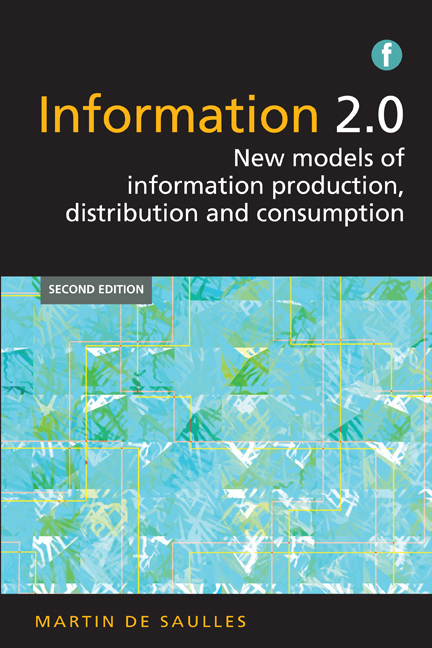2 - New models of information production
Published online by Cambridge University Press: 08 June 2018
Summary
Introduction
In the introductory chapter we saw how the rise of digital technologies has led to an unprecedented growth in the amount of information being created, distributed and consumed. Personal computing devices have allowed digital information to be produced and replicated while the internet has acted as an open platform for its distribution. This chapter considers the impact of new models of information production on existing industries such as newspaper and book publishing as well as new industries that are being created around digital currencies, social media and the connection to the internet of household and wearable technologies such as thermostats and watches. Although the migration of established newspaper publishers to the internet may be seen as an evolutionary development, the creation of new global currencies based on computer algorithms could be argued to be a far more radical and disruptive innovation. Similarly, the mass adoption of wearable fitness devices, which are constantly tracking and reporting our health status, has the potential to revolutionize researchers’ understanding of how diseases develop and help users adopt early preventative measures. Perhaps less socially beneficial but of enormous commercial value are the information trails we leave behind whenever we use a search engine, visit a website or share our thoughts and photos over social media services. We may not see much of the information generated by our smart devices and our online behaviour but it is important to understand what these outputs are, who has access to them and what they are doing with it.
This chapter explores these issues and considers some of the key debates around the economics and ethics of these new forms of information production. Economic issues are at the core of debates around the future of news publishing while there is an emerging concern about who owns the data we are generating through our interactions with the digital world and ethical and legal questions around what third parties should be allowed to do with it. Let us begin our exploration of new models of information production by entering the blogosphere and considering the impact blogs are having on magazine and newspaper industries.
- Type
- Chapter
- Information
- Information 2.0New models of information production, distribution and consumption, pp. 15 - 48Publisher: FacetPrint publication year: 2015



